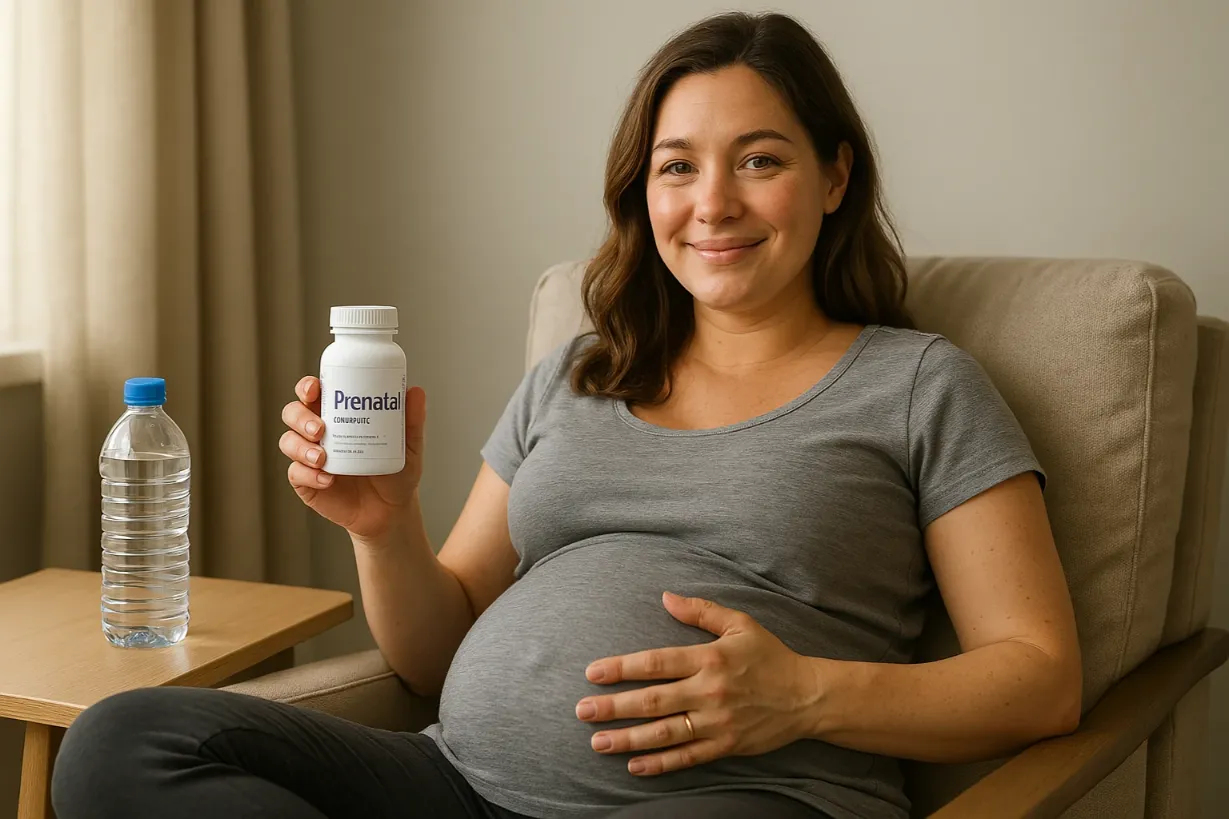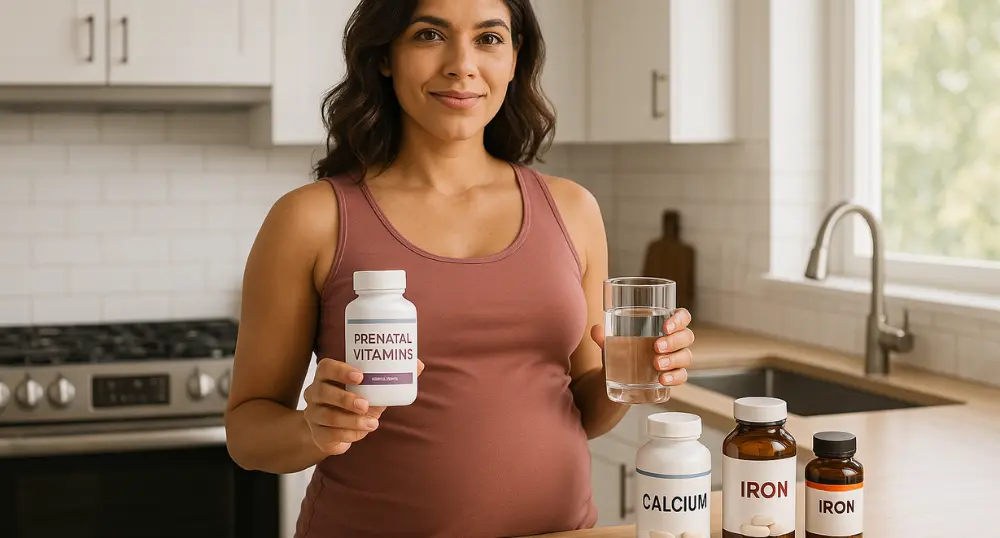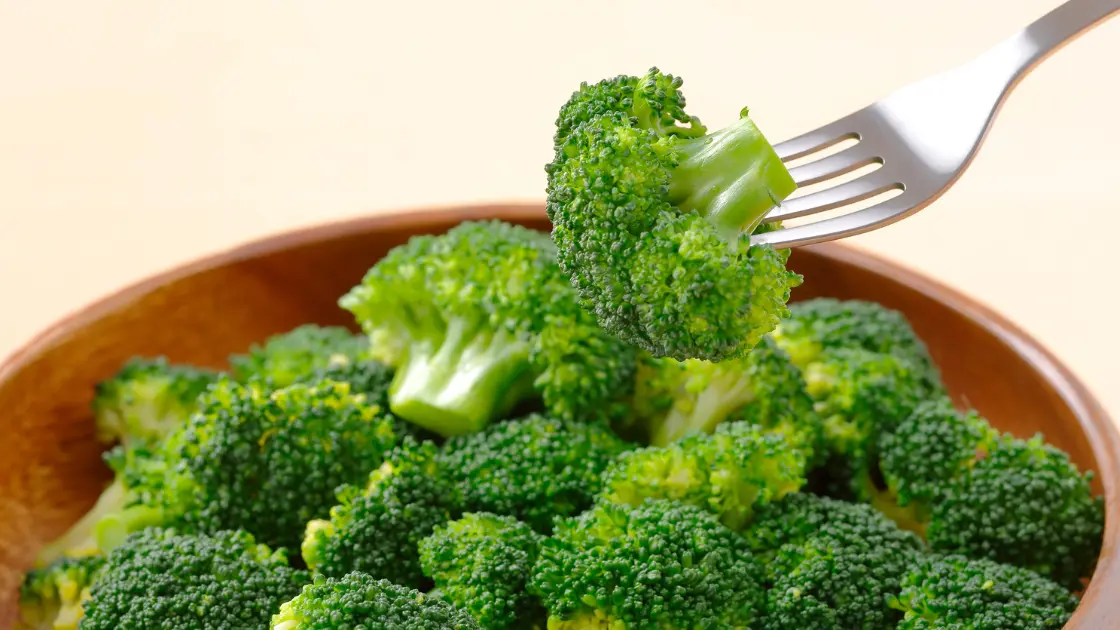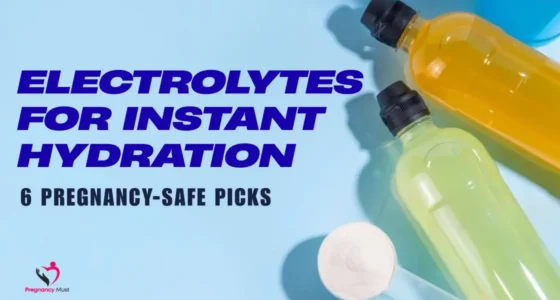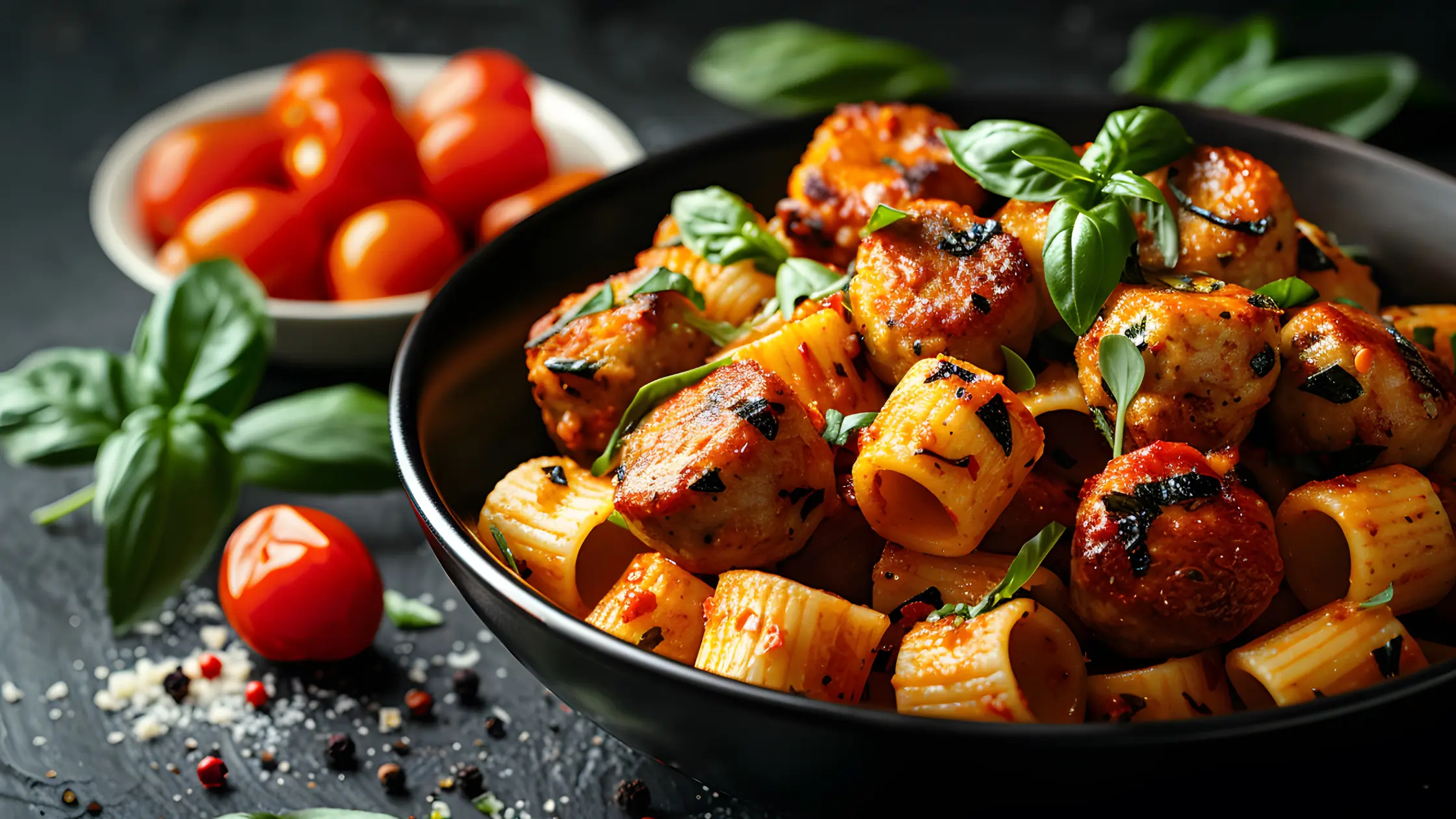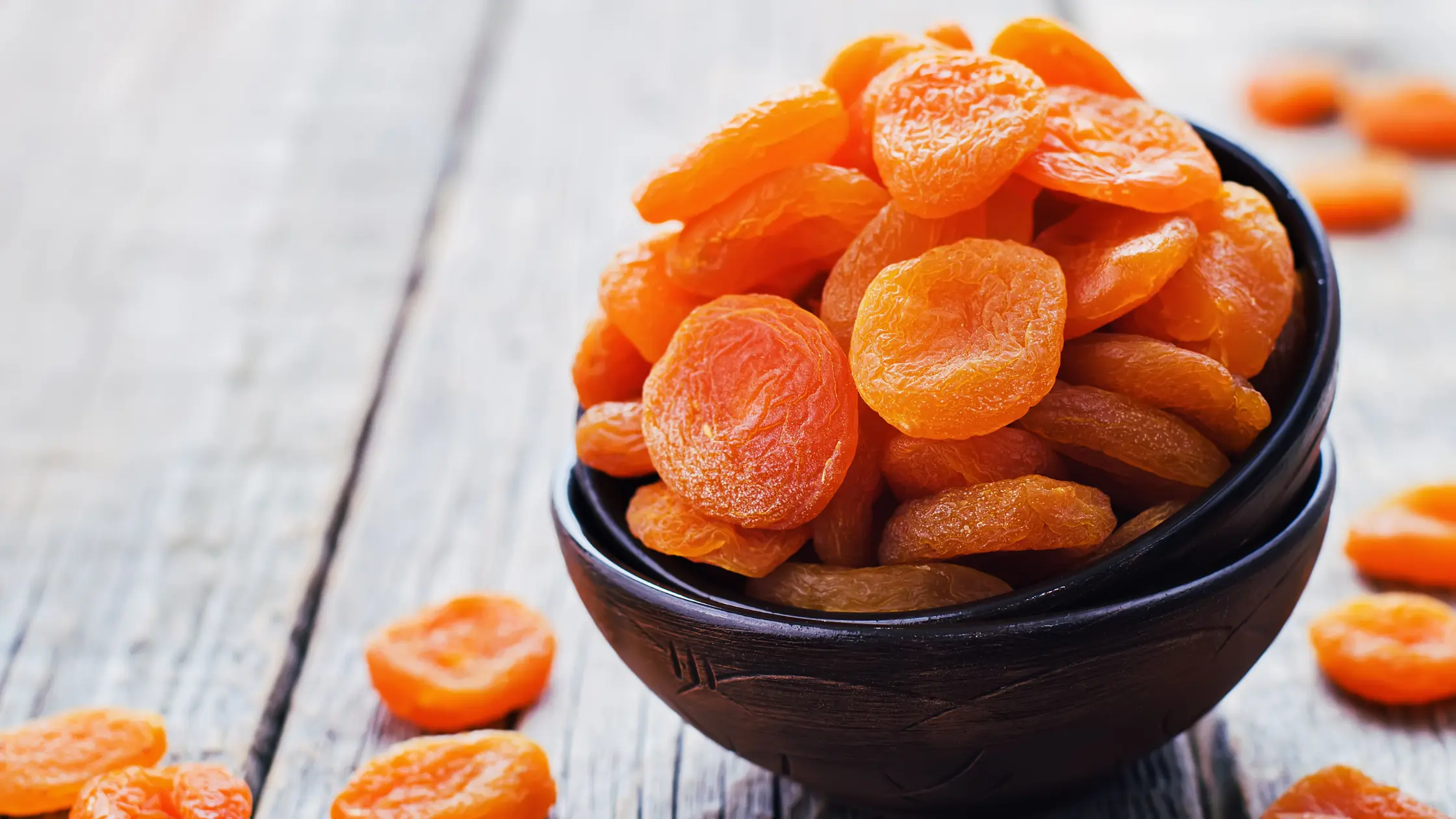Supplements in Pregnancy: What You Need & What to Avoid
A wonderful and transforming event, pregnancy shapes life. To be honest, though, the deluge of fresh counsel and knowledge may be debilitating. One has to take much thought on many topics. Every choice counts—from the foods to eat to the kind of exercise to conduct. Then there are the pregnant vitamins. Are you going to take them? Which ones? Exactly how many? Are they required? Behind them, what is the reality?
Listen; it is time to get genuine. You must know what works and what does not since not all supplements are made equally. Not fluff. Not one sales pitch. simply the facts. This blog post will guide you throughout the realm of pregnancy vitamins so you may make selections best for your baby and you.
Let us dissect it piecemeal, methodically. We are delving closely into the vitamins you can skip and those that are really helpful.
Table of Contents
- Supplements in Pregnancy: What You Need & What to Avoid
- First step: Start with prenatal vitamins; never overlook this one!
- Second Step: Get Enough DHA-Crucially Important for the Development of Your Baby’s Brain
- Third step: avoid too high levels of vitamin A; more isn’t better.
- Fourth step: think about calcium; but, use caution with high doses
- Fifth step: Keep the basics and avoid overdoing vitamin C.
- Step 6: Iron: Definitely Crucially Important, but Watch Out for Constipation
- Step 7: Avoid the “Miracle” Supplements; Steer Clear of the Hype
- Eighth step: keep hydrated; your friend is water.
- Ultimately, keep it simple and see your doctor.
First step: Start with prenatal vitamins; never overlook this one!
Any wise pregnancy starts with a strong prenatal vitamin. Let me explain things: this is not optional. Essential minerals found in prenatal supplements will help your body and unborn child flourish. Usually include folic acid, iron, calcium, and DHA—all of which are vital for the growth and development of your baby—they also include other nutrients.
In the early stages specifically, folic acid is crucial to prevent neural tube problems. Without it, you run danger not only for your baby but for yourself. Iron helps avoid anemia; calcium supports the developing teeth and bones of your infant.
There are a lot of prenatal vitamin choices available; do some study. Go for a well-known, reliable brand. Discuss which one would be most appropriate for you with your doctor. Indeed, you could feel as like you are daily swallowing a horse pill, but believe me—it is well worth it.
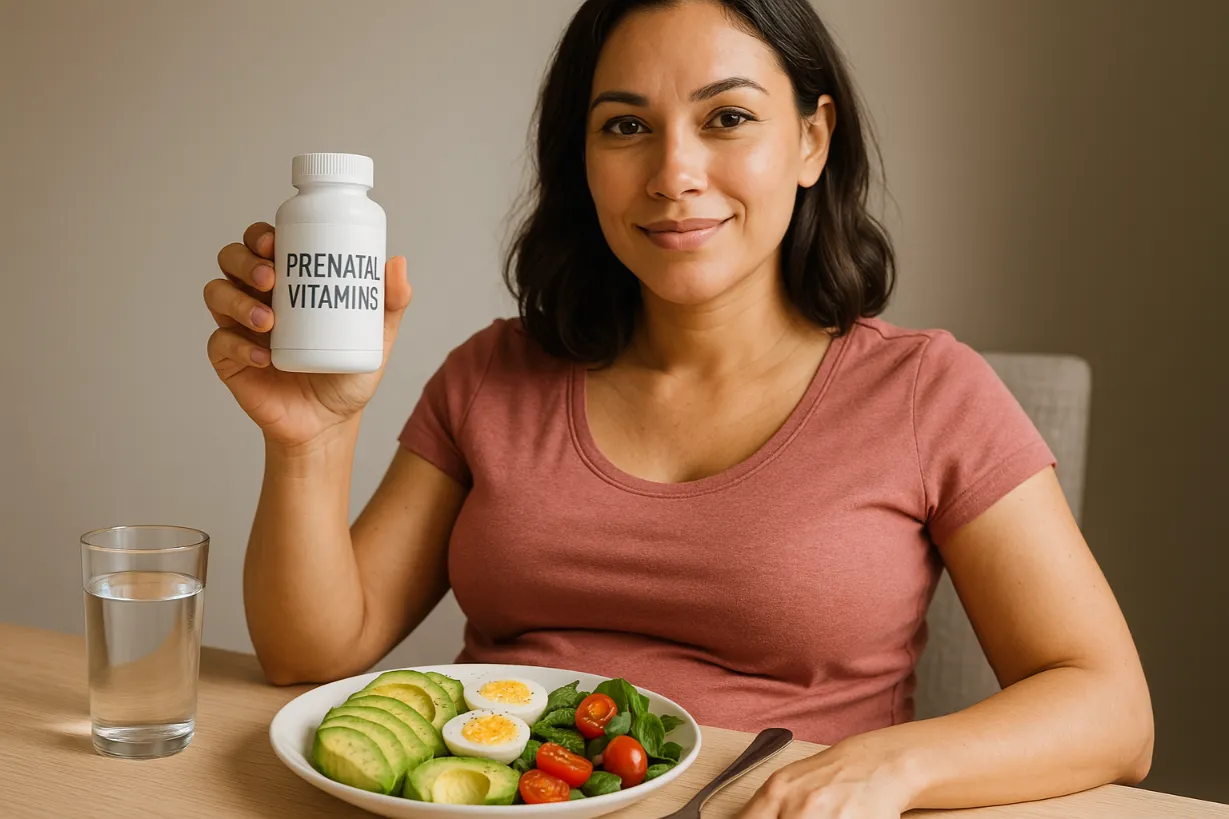
All you need is love. But a little chocolate now and then doesn’t hurt.
Charles Schulz
Second Step: Get Enough DHA-Crucially Important for the Development of Your Baby’s Brain
One kind of Omega-3 fatty acid your baby’s brain growth depends on is DHA. Your pregnant supplement program really must have it. DHA can even help your infant see better and improves cognitive development. Studies reveal that DHA aids in nervous system development.
Fish oil contains DHA; if you hate fish, there are plenty of plant-based substitutes at hand. Particularly for vegetarians or vegans, algal oil is a great option. Get at least 200–300 mg of DHA per day.
Never cut back on this one. You need it, as does the brain of your baby. Indeed, you will also need to keep taking it postpartum to maintain brain function.
• Pro Tip: Search for free of mercury DHA supplements. High mercury levels from some fish should be avoided by pregnant women.
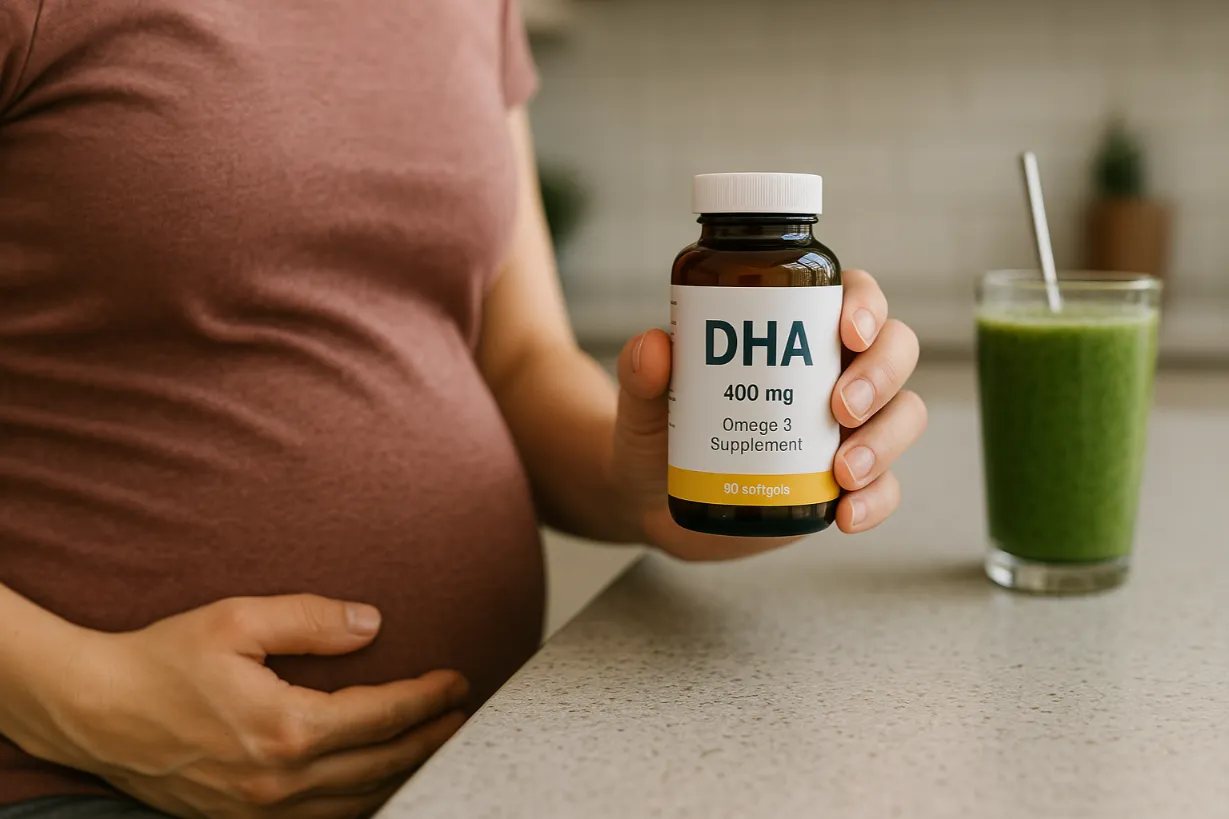
Third step: avoid too high levels of vitamin A; more isn’t better.
The fact is, you need vitamin A while pregnant. For your baby’s immune system, eyes, and skin development as well as for Try not to go too far though. Particularly from pills, too much vitamin A can be poisonous and cause birth abnormalities. Retinol, the animal version of Vitamin A, high amounts can cause problems including liver damage.
Whole foods like carrots, sweet potatoes, and leafy greens provide your vitamin A. You need not worry about it if your prenatal supplements contain vitamin A. You should be especially alert for the supplements that exceed advised dosages. Maintaining the advised daily dosage of 770 mcg, You do not require more.
• Pro Tip: See your doctor first if you are thinking about a separate Vitamin A supplement.
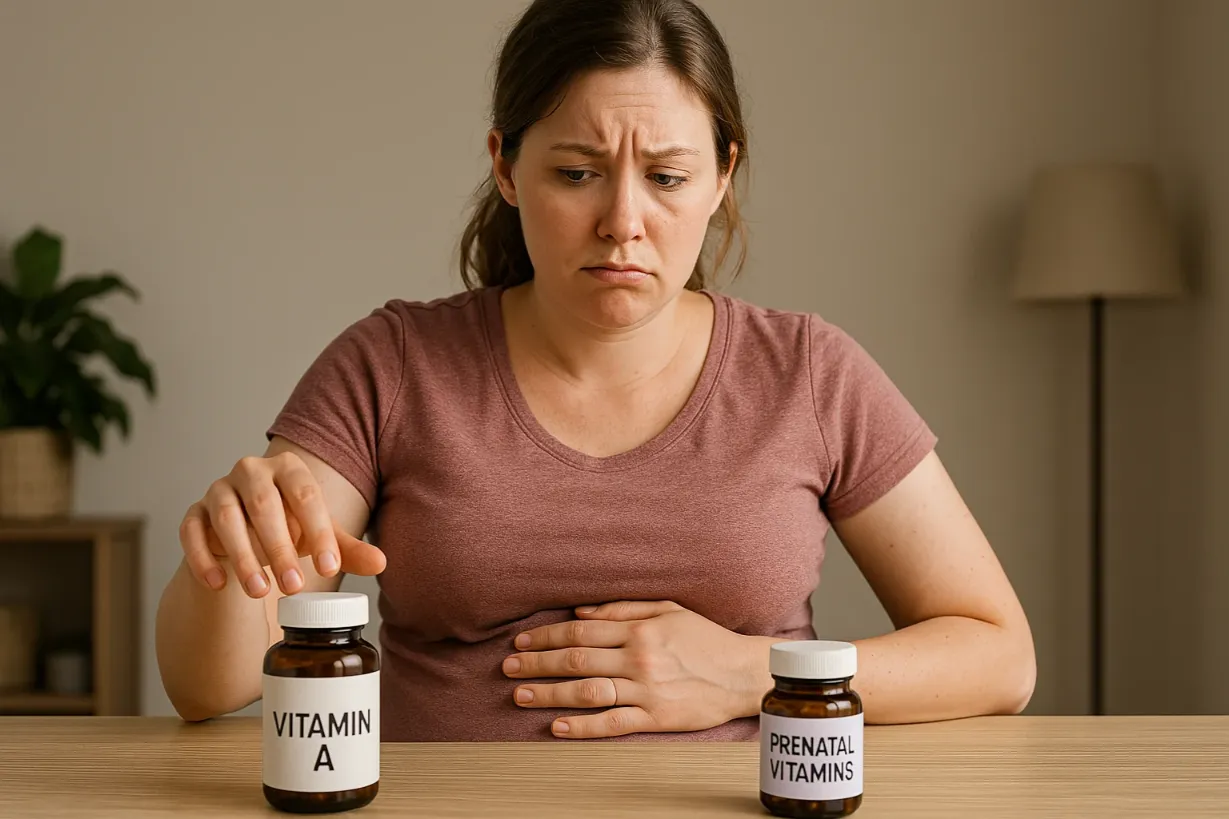
Fourth step: think about calcium; but, use caution with high doses
Your child and you both really must get calcium. It promotes heart health, muscle function, bone and tooth development, and dental alignment. You’ll be advised to take calcium supplements, but here’s the hitch: more isn’t necessarily better.
You might already be getting enough calcium if your diet consists mostly in dairy products, leafy greens, and fortified foods. Your prenatal vitamins probably will meet your calcium requirements. If you are prescribed additional calcium, that is okay; but, bear in mind that too high levels—more than 2,500 mg daily—may induce kidney stones and constipation.
During pregnancy, you should aim for roughly 1,000 mg daily; but, depending on your diet, you could desire more. See your doctor to find out.
Pro Tip: For greater absorption, consider taking calcium in smaller amounts all through the day.

Fifth step: Keep the basics and avoid overdoing vitamin C.
Although vitamin C is great for strengthening your immune system, let me say, you really don’t need a lot of it while pregnant. Most prenatal vitamins provide enough vitamin C; hence, extra supplementation can be pointless.
Too much vitamin C—more than 2,000 mg daily—can lead to stomach problems including nausea and diarrhea. All the Vitamin C you need will come from a balanced diet with fruits and vegetables like bell peppers, strawberries, and oranges.
A little additional vitamin C might be fine if you’re feeling run-down; much more than that can really cause more harm than benefit. Let it be straightforward.
Pro Tip: Load up on fruits and vegetables. The best natural providers of vitamin C are these ones.
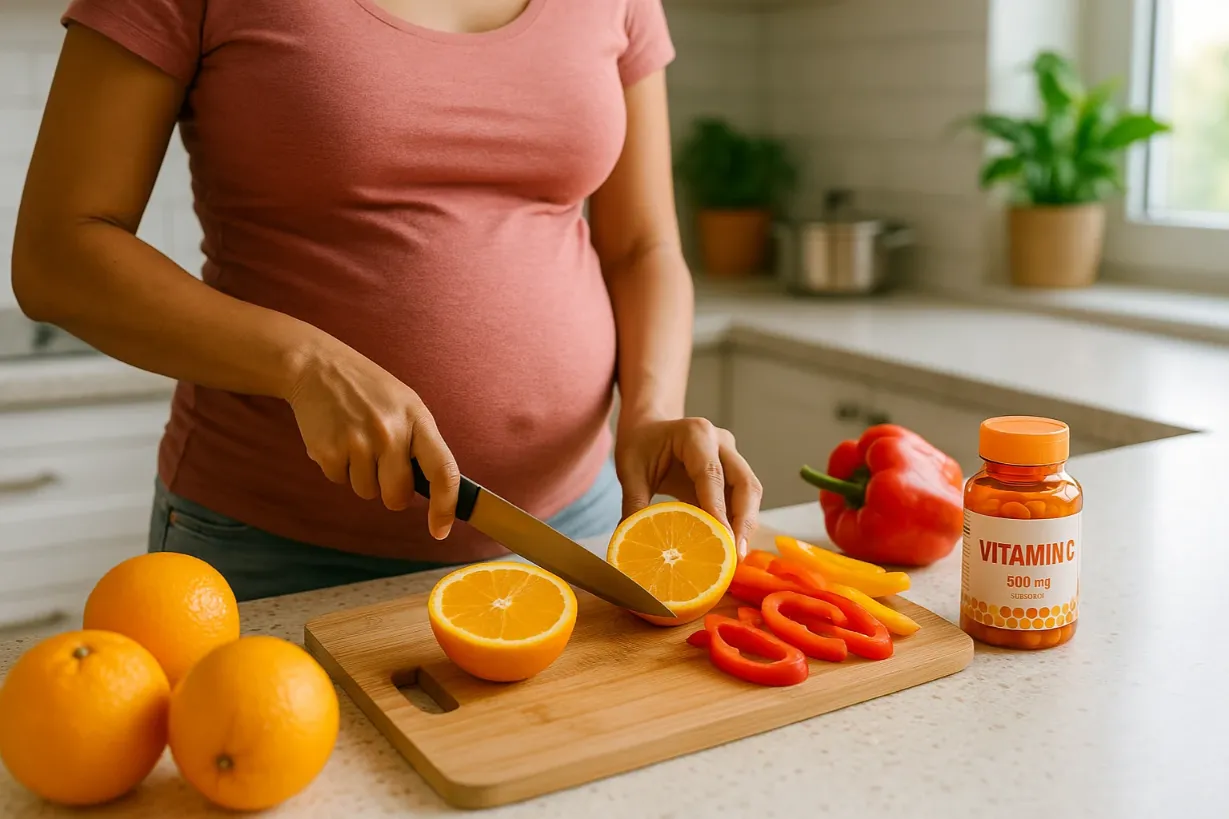
Step 6: Iron: Definitely Crucially Important, but Watch Out for Constipation
Iron is absolutely vital. Your blood volume rises during pregnancy; iron aids in the synthesis of extra red blood cells. You run the danger of getting anemia without enough iron, which can cause tiredness and perhaps problems during birth. Iron pills do, however, frequently result in constipation.
If you require an iron supplement, have it with food and drink plenty of water to aid with constipation. To increase absorption, you might also try taking it alongside a source of vitamin C—such as a glass of orange juice.
• Advice: Discuss with your doctor moving to a milder form of iron should constipation start to cause significant trouble.
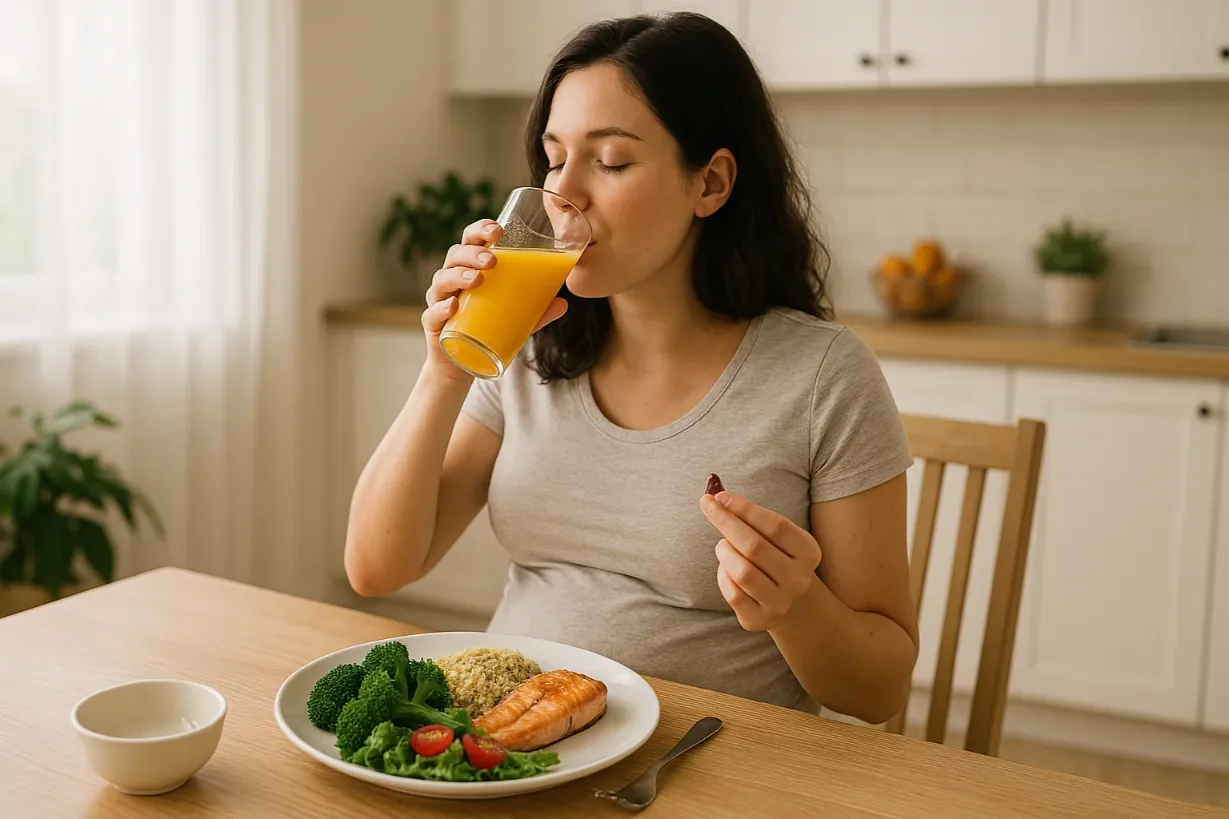
Step 7: Avoid the “Miracle” Supplements; Steer Clear of the Hype
Let’s start with one clear point: a supplement is not required merely because it is touted as a “miracle” product. There are countless vitamins on the market promising to enhance everything from embryonic development to skin condition. Use caution, though. You won’t have to shell out a fortune on every new pregnancy aid that catches your eye.
Stay simple: prenatal vitamins, DHA, calcium (if needed), and iron. Anything other than that? likely not worth it. Claims that sound too good to be true should not entice you. See your doctor first before including anything into your supplement schedule.
• Fast Tip: Consider if the supplement is really necessary or merely another marketing ploy.
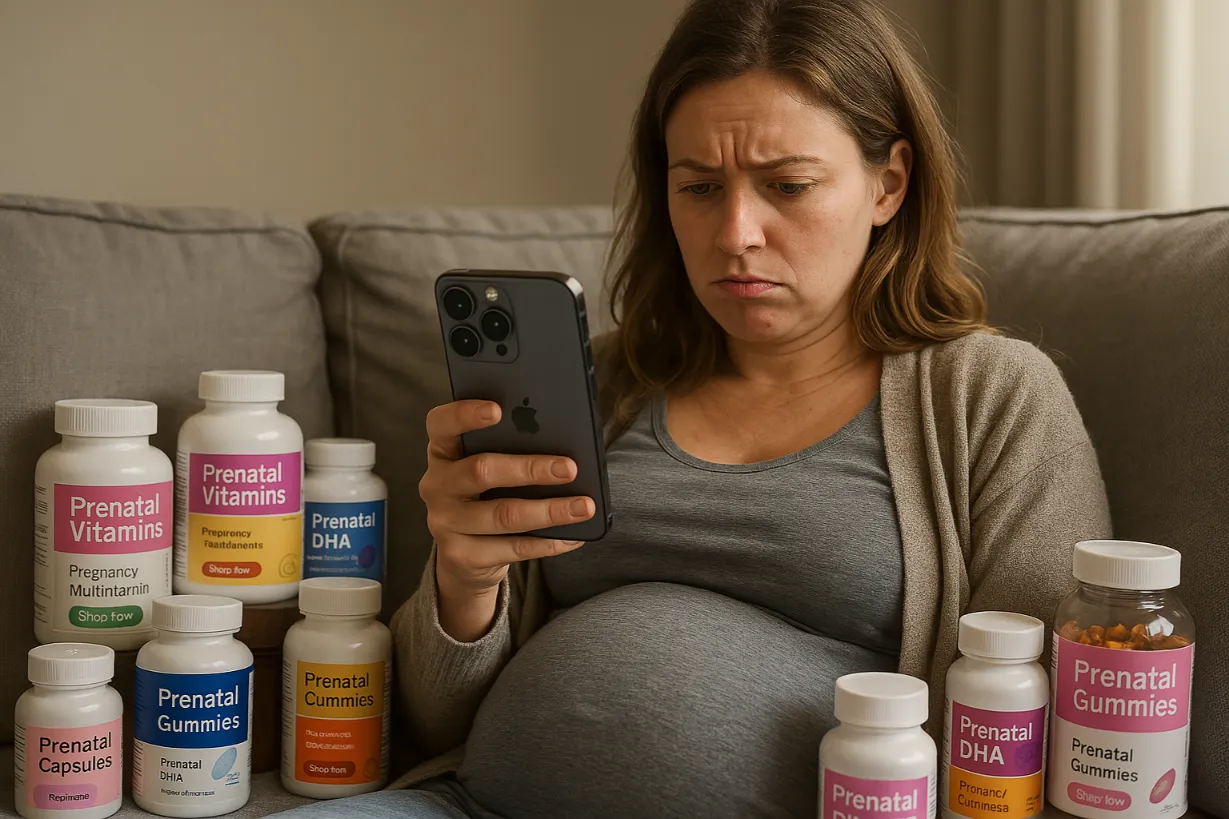
Eighth step: keep hydrated; your friend is water.
Not to be overlooked is the most vital “supplement” available—water. Just as vital as getting your vitamins is keeping hydrated. It maintains your body in good working order, aids in digestion, and even helps against pregnancy tiredness. Throughout the day, sip lots of water; steer clear of sugary drinks or too much coffee.
Pro Tip: Try adding lemon, cucumbers, or mint to your water for a reviving change.

Ultimately, keep it simple and see your doctor.
Regarding pregnant vitamins, less is usually more. Stay with the basics: prenatal vitamins, DHA, iron, calcium (if necessary), and a sensible diet. Avoid falling into the hoopla about every new supplement available. Pay particular attention to what your body and the development of your child really need.
Consult your healthcare provider before making any changes to your supplement routine. And pay close attention to your body always. You don’t need to overload on supplements to have a healthy pregnancy. Keep it simple, stay informed, and trust your instincts.
Taking supplements during pregnancy doesn’t need to be a complicated decision. Stick to the basics, follow your doctor’s advice, and you’ll be set to feel your best.
If you have any questions, feel free to contact us—we’re here to help guide you every step of the way.
